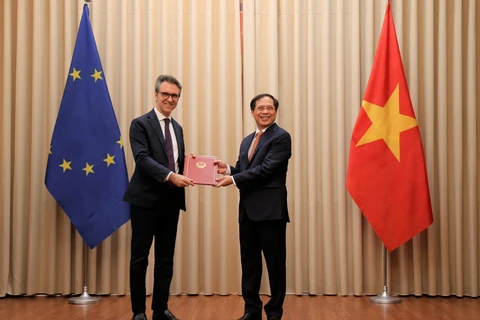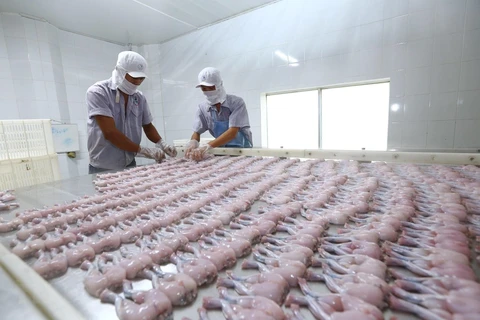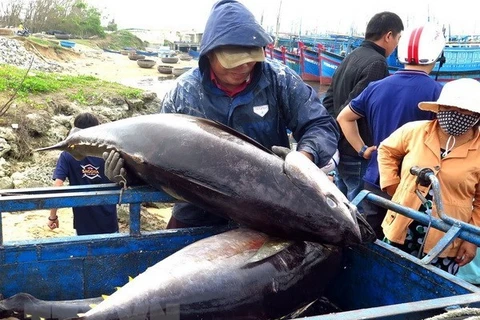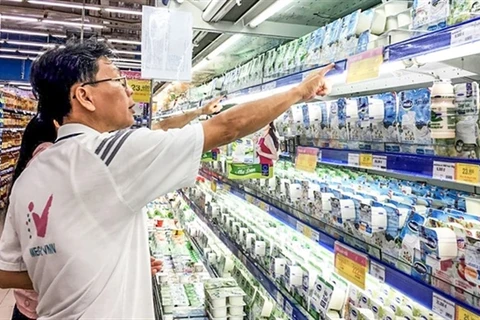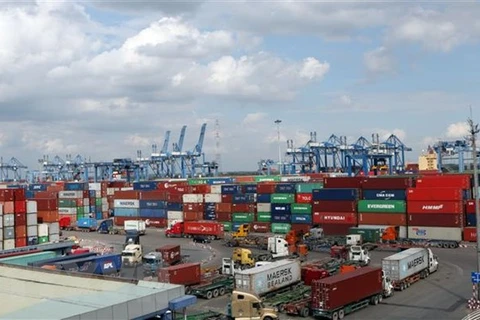Hanoi (VNA) - A conference discussing measures to fully tap into opportunities brought about by the EU-Vietnam Free Trade Agreement (EVFTA) and support Vietnamese enterprises in promoting post-pandemic development was held in Hanoi on June 29.
The event is part of a chain of seminars hosted by the Ministry of Industry and Trade after the National Assembly officially ratified the agreement on June 8.
Addressing the conference, Deputy Minister of Industry and Trade Tran Quoc Khanh said that with its deep commitments, the EVFTA is hoped to further promote trade and investment relations between Vietnam and the EU in particular as well as foster Vietnam’s international economic integration in general.
Vietnam’s export and import turnover were down 2.8 percent in the first five months of 2020, he said, due to the impact of the COVID-19 pandemic.
Once in effect, the EVFTA will provide impetus for Vietnamese enterprises to recover and promote production and business activities, he said.
Businesses can join new supply chains to replace traditional supply chains that have been disrupted by the COVID-19 crisis, while expanding and diversifying their export markets to minimise dependence on certain market groups, he added.
Pham Tuan Anh, deputy head of the International Cooperation Department at the Ministry of Finance, said that similar to FTAs Vietnam has signed with partners and implemented previously, MoF is also proactive in building and implementing relevant plans it is in charge of.
According to Phan Thi Thanh Xuan, Vice Chairwoman and General Secretary of the Vietnam Leather and Footwear Association (Lefaso), the implementation of the agreement will help businesses accelerate their exports, especially to the European market, because it accounts for nearly 30 percent of Vietnam’s export turnover.
According to representatives from Lefaso, it is necessary to develop support industries because the financial strength of small- and medium-sized enterprises is not enough to be self-sufficient in producing raw materials, so strategies to strengthen the supply of raw materials for production are necessary.
Businesses also need to participate in domestic and foreign chains and be closely linked with domestic and foreign suppliers to respond to fluctuations in a timely manner, they said./.
VNA

